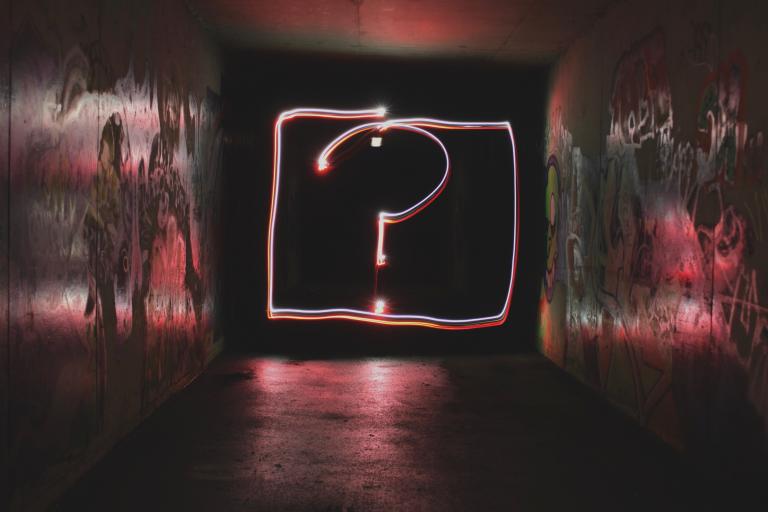
I don’t know about you, but I have been observing the lengths people will go to shame others for not wearing a mask. I posed questions on my Facebook page to inquire about what other people were observing and experiencing. I was also curious about what others thought about those who decline the option of wearing a mask.
Many people seem to believe that if you don’t wear a mask it’s because you don’t care about others and that wearing a mask is a sign of respect. More than just a sign of respect, it puts others at ease, it makes them feel comfortable. Other people believe that those who refuse to wear masks are doing so out of spite or because they are Trump supporters.
I saw this to be a common categorization. Those who wear masks tend to lean left on the political spectrum and those who do not tend to lean right on the political spectrum. This tidbit is a bit odd to me. Given the work that Jonathan Haidt has presented on the moral foundations of politics, I would think that those that lean right would be more inclined to wear masks than those on the left.
Haidt’s The Righteous Mind explains why:
“The original adaptive challenge that drove the evolution of the Sanctity foundation, therefore, was the need to avoid pathogens, parasites, and other threats that spread by physical touch or proximity. The original triggers of the key modules that compose this foundation include smells, sights, or other sensory patterns that predict the presence of dangerous pathogens in objects or people. The current triggers of the Sanctity foundation, however, are extraordinarily variable and expandable across cultures and eras. A common and direct expansion is to out-group members. Cultures differ in their attitudes toward immigrants, and there is some evidence that liberal and welcoming attitudes are more common in times and places where disease risks are lower. Plagues, epidemics, and new diseases are usually brought in by foreigners—as are many new ideas, goods, and technologies—so societies face an analogue of the omnivores dilemma, balancing xenophobia and xenophilia.” (173)
Going further, Haidt highlights that the Sanctity/degradation foundation is triggered more often for those on the right than the left. We notice this moral foundation more blatantly revered by the religious right, especially with appeals to the sanctity of life—pro-life stances. The degradation principle is activated by disgust, which further reiterates the ways in which people organized themselves and separated themselves from foreigners as we evolved in societies. Tribes kept us safe because we knew them and had already built immunity within such groups. It was a protective action that allowed civilization to further grow.
But if the right leans more toward those “fears” of out-group members and the potential spread of disease, why would they be less inclined to wear masks, further preventing them from contracting Coronavirus? And isn’t it odd that the left, who generally don’t hold the same values of the sanctity of life in unborn babies, has made an about-face with this moral foundations?
My own observation from my travels to the local Target, Aldi, and Cashwise in rural Minnesota, revealed that much of the people wearing masks were elderly (and came armed with devious glares aimed at those who did not wear a mask). I even overheard two elderly ladies whispering behind their masks (not 6 feet apart from one another, I might add) that they couldn’t believe how many people were in the store and not wearing masks and compromising their safety. One would be obliged to ask if these ladies were so concerned about safety, why bother traveling to the local Target in the first place? Of course, I didn’t go around asking people which political party they vote for either, so this is all anecdotal and purely speculative. Nonetheless, I am curious.
Some of the comments shared on my Facebook post revealed a surprising generality; masks make other people “feel safe” and “show others that you care.” Masks= safety and care?
I know a lot of people from my generation probably remember the movie “The Mask” starring Jim Carey and Cameron Diaz. What I remember is the scene in which Ben Stein, playing Dr. Arthur Newman, discusses his book “The Masks People Wear.” “We all wear masks, metaphorically speaking. We suppress the id— our darkest desires— and adopt a more socially acceptable image.”
We adopt a more socially acceptable image. This is the line that speaks volumes. Could it be that the reason so many are wearing masks is not (only) because of safety concerns, but because of the appearance of concern?
One person said it like this:
“If even at the tiniest of things, me wearing a mask eases the worry of others, I should do it. It’s such a small thing. It sucks, it’s sweaty and I hate it, but I only have to do so for short burst, so I will. I do judge others who don’t wear masks, but only in that maybe I feel that they just don’t know or that they don’t “get it”, there is still some grace in my view. I don’t automatically assume that they are jerks.”
“Eases the worry of others” along with another shared view of “making other people feel comfortable” were two of the statements that were most concerning for me. Call it individualistic, call it selfish, call it what you want, but the idea that my actions need to be done in an effort to ease others or make them feel comfortable limits my overall freedom. I believe a lot of people understand this. There is a difference between my actions harming another directly versus putting others at ease. My fellow Libertarian friends could assist in this question: does the choice to not wear a mask violate the NAP (non-aggression principle)?
More than that, when I think about Jesus and his work and the continuing ministry of the origin of Christianity, I recall that none of it was about making other people comfortable. Jesus made everybody uncomfortable and it was through their discomfort that they pressed through the resistance and pressure of their previous beliefs and societal influences to embrace the Gospel of Love.
The thing is most of my work creates a sense of worry, fragility, and discomfort for plenty of others. That’s the nature of speaking your mind and sharing a view that isn’t so mainstream. If I only presented information that made people comfortable, I would have to censor myself so much that it would be altogether meaningless to even bother sharing my views at all. True, many could argue that there is a difference between wearing a mask and saying something provocative like “God will forgive all human beings, no one will burn in hell—hell doesn’t exist!” Words don’t spread germs and disease. I get that.
What about the psychology behind the mask? In the movie, the distinction was between the metaphorical masks that people wear, which is why Stanley Ipkiss couldn’t get the help that he sought. He was dealing with a literal mask, one that was possibly possessed with the spirit of the Norse Night god, Loki. Yet, we are dealing with a literal mask, one that can be voluntarily worn and removed. One that doesn’t necessarily take over us and make us manic. Or does it?
Are the masks being used as a demonstration? Are those who wear the mask showing they care about the safety of others, or about their own safety? It could be both. Either way, it presents an image, vividly, for others—the ones who don’t wear the masks.
From what I have been told, there is an assumption that those who wear the masks are the easiest to identify as compliant to the state. They are what some call “sheep.” The opinions of some people I engaged with suggested that the ones who wear a mask provide a clear indication that they will be the easiest to control. Another suggested that the reason people wear the masks is that they fear the consequence of not wearing one, whether it be they spread the virus and infect another or that they will be socially persecuted or legally fined if they do not.
This brings up a rather interesting dynamic at play. It echoes the thought experiment once offered by Glaucon in The Republic. Haidt extrapolates the dialogue, noting that Glaucon “implies that people are only virtuous because they fear the consequence of getting caught—especially the damage to their reputation.” (The Righteous Mind, 85) Even though Socrates argued to prove Glaucon wrong, Haidt suggests that he was right.
Is the function of our moral reasoning—to wear masks—shaped by our desire to “pursue socially strategic goals, such as guarding our reputations and convincing other people to support us, or our team, in disputes?” If it is, that would mean that wearing the mask is more about appearance than concern. I have heard it said that wearing a mask to prevent the spread of the virus is mostly about personal accountability.
Accountability plays an important role. It operates as a system that holds people responsible for their actions (and inaction). One definition of accountability is the “explicit expectation that one will be called upon to justify one’s beliefs, feelings, or actions to others.” Haidt notes that “when nobody is answerable to anybody, when slackers and cheaters go unpunished, everything falls apart.” Phil Tetlock suggests that we “act like intuitive politicians, striving to maintain appealing moral identities in from of our multiple constituencies… Appearance is usually far more important than reality. (The Righteous Mind, 87-88)
The definition of accountability referenced in Haidt’s The Righteous Mind reminds me of two particular verses in the Bible. The first can be found in the Gospel of Matthew.
But I tell you that everyone will have to give account on the Day of Judgment for every empty word they have spoken. For by your words you will be acquitted, and by your words you will be condemned (Matthew 12:36-37).
The second can be found in Romans.
So then, each of us will give an account of ourselves to God. (Romans 14:12).
Accountability, as far as I can tell, is important for Christians. When you couple that with societal influences and expectations, it’s readily justified. Wearing a mask is good for all because it’s a responsible action to reduce illness. But how often do we really think about why we do the things that we do? Can we give reason, cause, account for the “empty word” spoken, or the action that created a cause for punishment (or reward)? The question that comes to mind is this: Are people exercising a form of systematic critical thought and reasoning to justify why they are wearing the masks?
Following that, what happens when “nobody is answerable to anybody”? From a political standpoint, it seems like even though we claim to believe that we should hold people accountable, we don’t when it comes to those we elect. In fact, we continue to reelect those who get away with things that we would not be able to. Those who are impugned by accusations and allegations of brutal force and assault—take Joe Biden and Donald Trump, for instance—are elected to higher offices.
We demand accountability yet we don’t. This demonstrates a dereliction of careful reasoning.
Haidt utilizes Tetlock’s research findings about careful reasoning.
“Exploratory thought is an ‘evenhanded consideration of alternative points of view.’ Confirmatory thought is a ‘one-sided attempt to rationalize a particular point of view.’ Accountability increases exploratory thought only when three conditions apply: (1) decision makers learn before forming any opinion that they will be accountable to an audience, (2) the audience’s views are unknown, and (3) they believe the audience is well informed and interested in accuracy.
“When all three conditions apply, people do their darnedest to figure out the truth, because that’s what the audience wants to hear. But the rest of the time—which is almost all of the time—accountability pressures simply increase confirmatory thought. People are trying harder to look right than to be right.” (88-89)
Imagine what would happen if we were called to give an account for why we tweet or post on Facebook the things we do. Many are offended when someone asks for an explanation about a person’s stance. And if the majority of people weren’t offended or outraged, I don’t know how social media would continue.
I have noticed that when many people are asked to explain why they believe what they believe, they take it as an insult. When you ask someone to really break down their beliefs, they recoil and begin hissing, preparing to strike you with a venomous blow of ad hominem because you dared to not fully agree with their sentiments. The truth is, we are all looking for echo chambers and survive off of confirmation bias.
If you don’t believe me, just watch mainstream media for a few minutes. If someone on a panel dares to interject with a contradiction, question, or new information that better explains something that may have been miscommunicated or misheard, outrage ensues, arguments increase in volume and some heated exchange begins trending on Twitter.
Is it that, when we type out our thoughts and beliefs— on social media or whether we verbalize them on a podcast or Youtube video, or even in a discussion over coffee with a friend (if your city/state allows you to do things like that), we assume our audience is already in agreement with us? If that’s the case, that would explain why most people don’t want to give account. It could also mean that most people don’t want to argue with another who isn’t ready to hear their positions openmindedly.
Perhaps Tetlock is correct. Accountability pressures make us work harder at looking right rather than actually being right.
Tetlock’s research “concludes that conscious reasoning is carried out largely for the purpose of persuasion, rather than discovery. But Tetlock also adds that we are also trying to persuade ourselves. We want to believe the things we are about to say about others.” (89)
Is the act of wearing a mask a signal to others of our societal accountability? Is it easy to believe that the acion of wearing a mask is done so in an effort to persuade others to do the same? We are mimetic, and we rely on the behavior and beliefs of moral models to guide us in our journey. If we believe that another is demonstrating a moral practice, are we more inclined to imitate it even if we don’t even understand why we were influenced to do so? Isn’t that a similar ploy used by politicians? To get us to believe and imitate their values and practices without questioning why?
In an attempt to wrap this up, I will have to offer a follow-up segment that postulates why people elect not to wear masks. For now, a few final thoughts.
If we don’t know the real reason behind why people are wearing masks, does that really matter? The simple answer is no. What other people choose to do, or wear doesn’t impact me personally, nor you. But it does reveal things about humanity, especially if we don’t weigh in and consider why we do the things we do. The complex answer is yes, it matters. For me, the concern is that we are too easily influenced by the persuasive propaganda shoveled over us. We believe that we are being covered in dirt so that we can grow out of a garden bed of progressivism and collective concern. But if we aren’t careful about the depth of the soil, seeds will never germinate. Barren soil is easily eroded by wind and rains.
For more on Jonathan Haidt’s Righteous Mind, click here.












